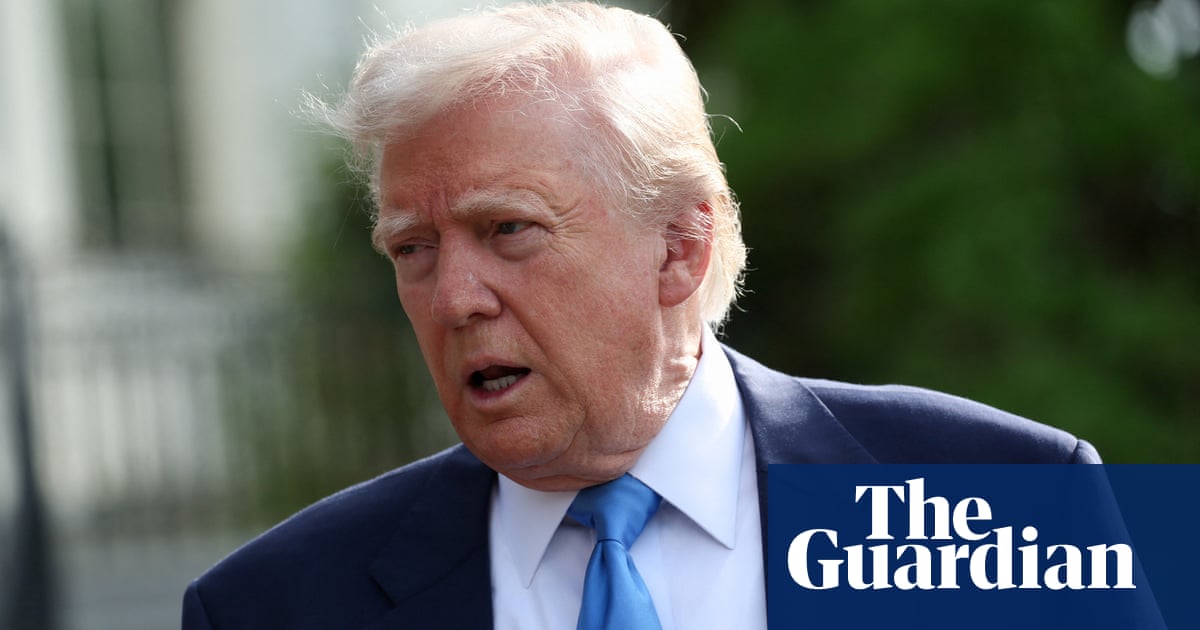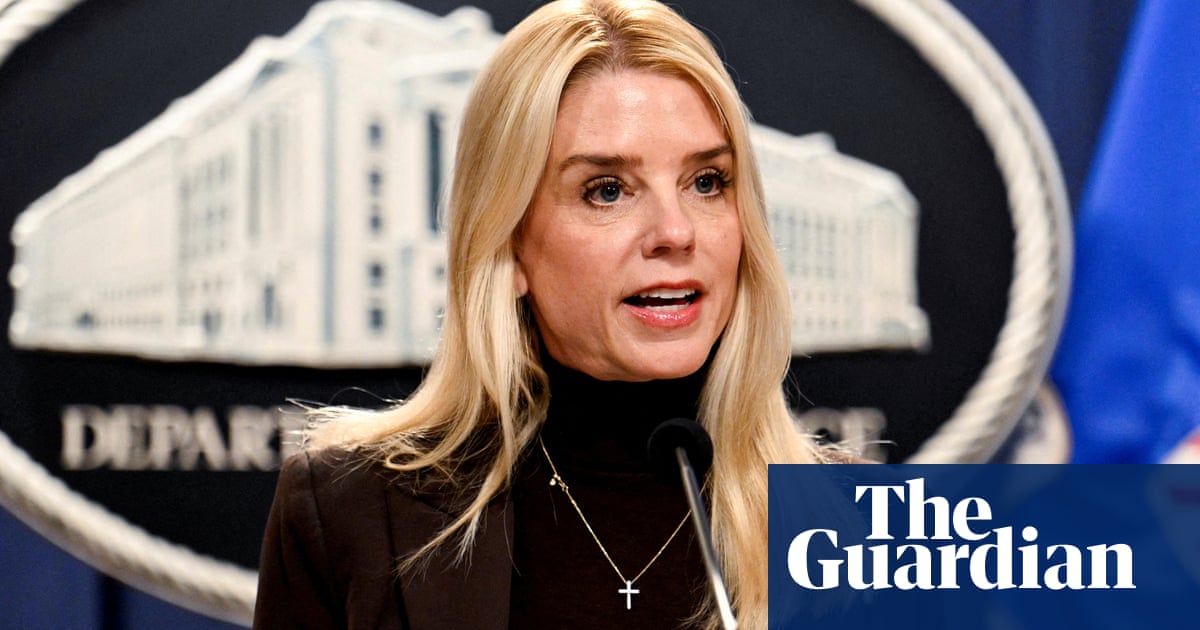The US health secretary, Robert F Kennedy Jr, entered office with a pledge to tackle the US’s chronic disease epidemic and give infectious disease a “break”. In at least one of those goals, Kennedy has been expeditious.
Experts said as Kennedy makes major cuts in public health in his first weeks in office, the infrastructure built to mitigate Covid-19 has become a clear target – an aim that has the dual effect of weakening immunization efforts as the US endures the largest measles outbreak since 2000.
“If his goal is to undermine public health infrastructure, he’s making strides there,” said Dorit Reiss, a University of California Law School professor whose research focuses on vaccine law. “If his goal is combating chronic diseases – he’s not doing very well.”
The Department of Health and Human Services (HHS) has been characterized by upheaval since Kennedy and the billionaire Elon Musk’s unofficial “department of government efficiency” (Doge) cumulatively axed 20,000 jobs – roughly a quarter of the 82,000-person workforce.
And it appears that turmoil will continue: a leaked budget memo shows the administration poised to propose a budget cut of another $40bn, or roughly one-third of the department’s discretionary spending.
Amid the cuts, attacks on Covid-19 infrastructure have proven thematic, and show the administration’s hostility toward work that once mitigated the virus. That’s included attacking promising vaccine platforms and elevating once-ostracized voices to high-level roles.
“The Covid-19 pandemic is over, and HHS will no longer waste billions of taxpayer dollars responding to a non-existent pandemic that Americans moved on from years ago,” a spokesperson for HHS told the Guardian in response to questions about its strategy.
“HHS is prioritizing funding projects that will deliver on President Trump’s mandate to address our chronic disease epidemic and Make America Healthy Again.”
Gregg Gonsalves, a Yale University associate professor and infectious disease epidemiologist, calls this strategy the “revenge of the Covid contrarians”.
“They’re not interested in the science, they’re interested in their conclusions and having the science bend to their will,” said Gonsalves. “They want to create a Potemkin village of their own making that looks like science but has nothing to do with science at all.”
Among Kennedy’s changes: attacks on the promising platform that supported Covid-19 vaccine development, delayed approval of a Covid-19 vaccine, the clawing back of grants that provided local immunization support and studied vaccine safety, and elevating one-time critics of Covid-19 policy.
“When the new administration came in, we were hearing even within the organization: ‘We can’t say Covid, we’re not allowed to say Covid,’” said Lori Tremmel Freeman, chief executive officer of the National Association of County and City Health Officials (Naccho), about her members’ conversations.
Freeman noted that “we kind of saw the writing on the wall a couple months ago that: ‘OK, they really don’t want anything Covid-related to be pursued any more.’ Everything Covid-related is quite honestly at risk.”
In the latest change, Kennedy said this week he may remove Covid-19 shots from the childhood vaccine schedule, which would probably make the shots harder to get by limiting insurance coverage.
“The recommendation for children was always dubious,” Kennedy told Fox News. Although a minority of children are vaccinated, the shots are recommended, especially for immune-compromised children.
Freeman believes the desire to erase the government’s Covid legacy led to HHS’s decision to claw back $11bn in public health funds from states and localities. In effect done overnight, the clawback gave local officials only hours to lay off workers, cancel immunization clinics and even stop construction projects.
“That’s why we feel like the drawback of the funding occurred: Covid,” said Freeman.
A spokesperson for HHS characterized this as a savings, and said most canceled awards were for Covid-19-related work.
The pullback led to the cancellation of more than 50 measles immunization clinics in Texas, where the measles outbreak has already claimed the lives of two unvaccinated children, to pilot programs such as “Text4Vax”, which sent reminders about pediatric vaccines to parents.
Among the canceled grants were also programs that would seem to align with Kennedy’s rhetoric about vaccine safety – among them, a study of the safety and effectiveness of Covid-19 vaccines in pregnant women in California and global Covid-19 vaccine safety monitoring in New Zealand.
“If you start to take away people from health departments – the immunizers, the educators, the clinicians – through some of these other funding cuts , it disables the program naturally,” said Freeman. “You can’t put as many shots in arms.”
Larger cancelled grants included a $2.25bn grant program to reduce Covid-19’s impact on the people worst affected, which had been sent to states and localities from South Dakota to Florida and the Virgin Islands to Vermont.
Under Kennedy’s watch, HHS has also taken the unusual step of delaying an expected vaccine approval, reportedly under the watch of a Kennedy political appointee.
The Food and Drug Administration (FDA), which sits under the umbrella of HHS, delayed the expected 1 April approval of the Novavax Covid-19 vaccine. Novavax confirmed to the Guardian that its application remained on hold, and said it would have “no further comments”.
Reiss said she doesn’t think “any vaccine that’s in the pipeline is going to go forward under Kennedy” or that “he will let any vaccine go far now”.
Dr Tracy Hoeg, a political appointee, was reportedly involved in the decision. Hoeg also appeared as the FDA’s representative at a special advisory committee on immunizations in April, where she took the opportunity to question the efficacy of Moderna’s Covid-19 vaccine.
An HHS spokesperson told the Guardian: “The FDA’s independent review process for the Novavax vaccine, like all vaccines, is based solely on ensuring safety and efficacy, not political considerations. Any delays are a result of scientific review, not a lack of priority. It’s important to focus on the facts rather than unfounded speculation.”
Scientists have also said they fear for the future of messenger RNA (mRNA) vaccine technology – the platform that underpinned the fast development of Covid-19 vaccines and that held promise for treating and preventing a wide range of diseases.
Hoeg served on Florida’s public health integrity committee, which served as a platform for Covid-19 criticism during the pandemic. At the time, it was chaired by the Florida surgeon general, Dr Joseph Ladapo, who has also sown doubt about the safety and efficacy of mRNA vaccines.
Hoeg could be further buttressed by insiders such as Dr Matthew Memoli, who, Kennedy said, “is going to be running Niaid [National Institute of Allergy and Infectious Diseases]”. Memoli, whom Kennedy described as “the top flu researcher at NIH”, is known for opposition to Covid-19 vaccine mandates and declined to be vaccinated. In March, Memoli sent an email to NIH grant officials requiring any grant applications that reference mRNA technology to be reported to Kennedy’s office. He also canceled government-backed studies on vaccine hesitancy.
The nominee for HHS general counsel, Michael B Stuart, is also well-known for involvement in vaccine fights. Stuart, a former West Virginia lawmaker, in 2023 proposed a bill to exempt virtual public school students from vaccine requirements and allow private schools to set their own requirements, according to Stat.
“Dismantling the sort of vaccine infrastructure this country relies upon – that’s been in place for several dozens and dozens of years – only impacts the chronic disease front he’s trying to ameliorate as well,” said James Hodge, a professor of law at Arizona State University and a health law expert who said he worries about the future of vaccine advisory committees. “Acquiring infectious diseases leads to chronic conditions later.”
Still, some of Kennedy’s most ardent supporters and reported informal advisers, such as the former cardiologist Peter McCullough, have argued these actions don’t go far enough.
“The big threat is that we still have Covid-19 vaccines on the market,” McCullough told KFF Health News. “It’s horrendous. I would not hesitate – I would just pull it. What’s he waiting for?” McCullough did not respond to requests for comment from the Guardian.

 German (DE)
German (DE)  English (US)
English (US)  Spanish (ES)
Spanish (ES)  French (FR)
French (FR)  Hindi (IN)
Hindi (IN)  Italian (IT)
Italian (IT)  Russian (RU)
Russian (RU)  7 hours ago
7 hours ago
























Comments